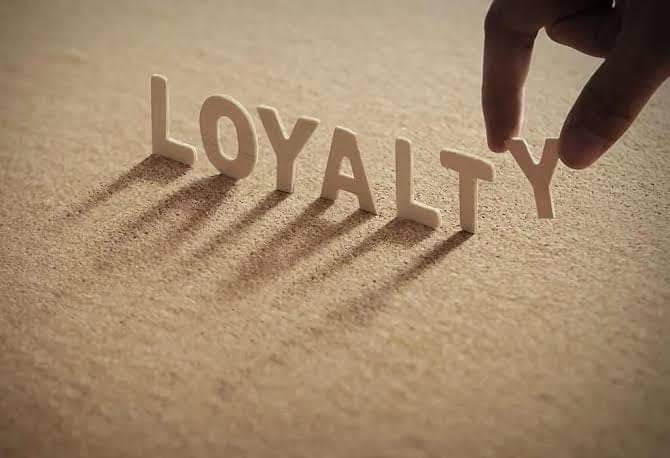Throughout history, loyalty has been more a virtue demanded by the strong than a spontaneous act on the part of an individual or a segment of society. In the strictest sense, allegiance which is demanded, or purchased, is not really loyalty and is an unpredictable factor in human relationships.
The allegiance of armies, of workers, or of countries are examples of more loosely knit groups whose alliances change with shifts in power or wealth. Stronger ties are manifest in allegiances to family or social groups, or to causes of one kind or another.
True loyalty is exhibited where true love also exists. For loyalty, like love, is a natural drawing-togetherness of two or more elements. It arises out of a desire for association. It is not demanded or bought.
To expect work for pay, obedience for protection, or cooperation for as much in return, is one thing. But to expect loyalty on those grounds is infringing on the personal liberty of the individual. Loyalty is not an earned condition for which one can barter, but rather a deserved condition that is given freely or not at all.
Many governments, churches, employers, and even parents demand loyalty. It is like demanding that someone love you. Loyalty thus demanded works against the freedom of the individual to associate with people or situations which he feels are more suited to his sphere. He is actually enslaved by a bond that goes under the guise of a moral principle.
Demands for allegiance and oaths of loyalty have their origin in the most basic of human drives, self-preservation. It is a measure of security on the part of a parent, an employer, or a church to insure a following and support, right or wrong, through thick and thin, by the simple expedient of creating a sense of obligation on the part of others.
Loyalty that cannot be won or earned should not be expected or demanded. A person’s freedom to move to those people and to those things to which he is naturally attracted should be his most carefully guarded birthright, else he or she may forever be a slave to a product, a situation; to people, to prejudices, and to certain avenues of thought without ever the chance to explore the wonders of the universe that lie about him.
So when political page boys, bootlickers, and lapdogs talk about total loyalty to their bosses or when their bosses demand total loyalty from them, do well not to take them seriously because it is in exchange for something tangible. They don’t know what loyalty means.
That is why a man who would usually have thousands of so-called die-hard “loyalists” flood the whole of Calabar from across the State and the entire apparatus of government shut down, to go and welcome him on arrival at the airport at the peak of his government, will now arrive that same airport and only three persons will arrive to welcome him because his days in that office are numbered. It was about interest and not about loyalty.
With only 20 days to go, the meaning of loyalty in our clime and even elsewhere should be clearer to him by now.
As for me, I am loyal to God.
Citizen Agba Jalingo is the Publisher of CrossRiverWatch and a rights activist, a Cross Riverian, and writes from Lagos.
NB: Opinions expressed in this article are strictly attributable to the author, Agba Jalingo, and do not represent the opinion of CrossRiverWatch or any other organization the author works for/with.
Since You Are Here, Support Good JournalismCrossRiverWatch was founded on the ideals of deploying tech tools to report in an ethical manner, news, views and analysis with a narrative that ensures transparency in governance, a good society and an accountable democracy. Everyone appreciates good journalism but it costs a lot of money. Nonetheless, it cannot be sacrificed on the altar of news commercialization. Consider making a modest contribution to support CrossRiverWatch's journalism of credibility and integrity in order to ensure that all have continuous free access to our noble endeavor. CLICK HERE |
New Feature: Don't miss any of our news again.Get all our articles in your facebook chat box.Click the Facebook Messenger Icon below to subscribe now
Text Advert by CRWatch :Place Yours

Will You To Learn How To Make Millions Of Naira Making Special Creams From Your Kitchen?.Click Here
Expose Your Business And Make More Sales. Advertise On CrossRiverWatch.com Today



Leave feedback about this